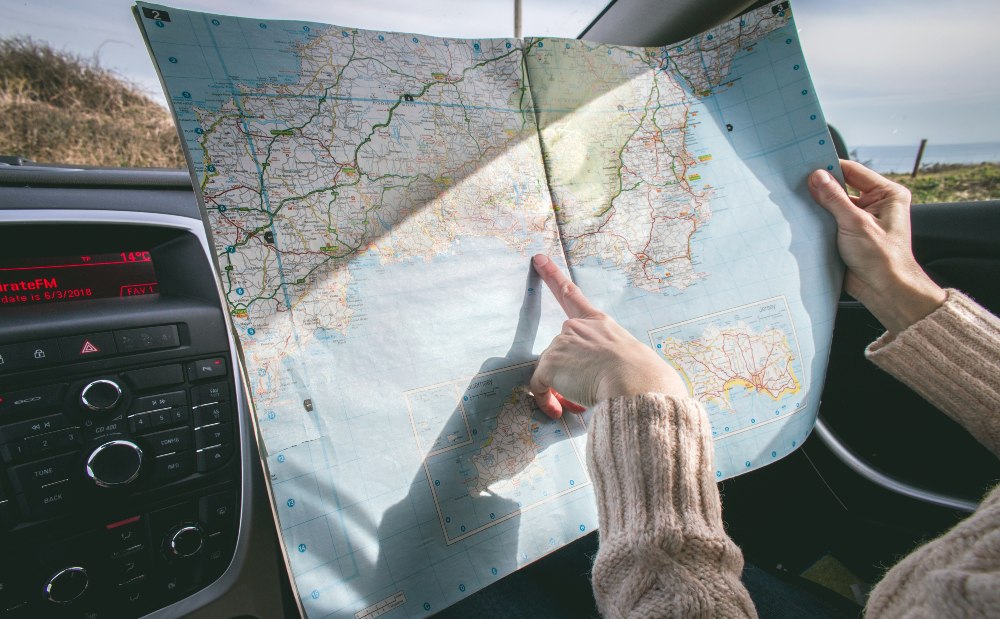Disclaimer: This article is meant to provide general information. For advice related to your specific situation, please consult a doctor or therapist. See our disclosure here.
Presented by BetterHelp.
Have you ever heard of post-travel depression? It’s a phenomenon that happens to many people, and there’s a good scientific reason for it. Although depression can happen during a trip or a move as well, many people feel a huge disappointment when they return from something they’d put so much time and planning into. Let’s take a look at why it happens and how to remedy it.

Why Do I Feel Sad After a Trip?
Feeling sad after a trip is normal, but why does it happen? Although it’s not always depression itself, any form of disappointment, sadness, anxiety, anger, or regret after a trip might come up. There are many reasons for this, but some of the most common include:
- Past trauma related to traveling or not having the chance to travel
- Financial struggles
- Emergencies or unexpected events during the trip
- Dissatisfaction with your career, relationship/s, living situation, etc.
- Dissatisfaction with the town/state/country you live in
- Boredom
- Having many responsibilities at home
- Feeling overwhelmed with your home life or family
- Difficulty accepting reality
No matter the reason why you feel sad after a trip, you’re not alone.
Can You Get Depression From Post-Travel Blues?
Depression is a mental health condition that is characterized by long-term periods of deep sadness, an inability to care for oneself, and other distressing symptoms. It may feel like you can never get happy, don’t enjoy your life anymore, or wish to end your life.
If you are feeling suicidal, reach out to the National Suicide Prevention Lifeline today at 1-800-273-TALK (8255). They are available 24/7 to help. You’re not alone, and your life is important.
Depression is a mental health condition, so it does have to be diagnosed by a licensed mental health professional. But can depression be caused by post-travel sadness?
Depression can be triggered by a variety of factors, including feeling deeply sad after a trip. If your sadness lasts more than two weeks, is accompanied by common symptoms of depression, and impacts your day-to-day life negatively, you may be experiencing depression.
It’s important to speak to a professional as soon as possible if you’re exhibiting symptoms of depression after a trip. You can also research depression in more depth to see if you relate to the symptoms and experiences of those who go through it.
Remember, depression is highly treatable, and there are ways to get through it, even if it feels like there is no hope.

How Can I Stop Feeling Sad After a Trip?
If you’re looking for ways to stop feeling sad after your trip, try these tips!
Plan Your Next Trip
A great way to get your mind off of your previous trip and the disappointment you may feel in being home is to plan your next trip. Although it might be a while, planning something exciting can get you focused on something positive.
Consider how much money you need to save up, what you need to arrange, and where you want to go. Make goals for yourself, and work hard to achieve them. Having something to work towards can help treat sadness, anxiety, and depression!
Find Ways To Make Your Own Life Exciting
If you are feeling sad due to the circumstances in your current life, it’s important to deal with them by facing them head-on. Finding ways to increase happiness and excitement in your current life can help you feel more appreciative and content.
If you don’t like your home, find ways to decorate or change it so that it fits your needs. If you don’t like your car, start saving up for a new one. Although it can take a while, putting investments into things you truly want for your future is a good way to avoid future post-trip depression.
Figure Out What About Your Life Makes You Sad
It’s essential to figure out why you feel sad after a trip to be able to help yourself. If you’re unsure, it might be worth speaking to a therapist to figure out if you might be experiencing depression or anxiety after your trip.
If there’s something in your life that leaves you deeply upset, your therapist will be able to help you come up with coping mechanisms to deal with these things and potentially change them.
Consider a Change
Finally, if you’re truly dissatisfied with your life, there’s nothing saying you can’t change it. Although it can be hard to make major life changes, nothing is impossible.
If you’d prefer to live in your preferred vacation destination, whether it’s international or not, there may be ways to do so.
Here are some examples of people who were able to make big changes and find satisfaction in their lives.

Jane’s Story
Jane hated the town she grew up in and much preferred to travel to Canada once a year. Whenever she came back, she would become severely depressed and would end up needing to take medication. Jane decided she was going to move to Canada and went through a remote worker visa process. She was approved within a year and was able to move to a new city where she met new friends, got married, and changed all aspects of her life.
Jack’s Story
Jack worked as a designer in a small town in Illinois. He had always dreamed of moving to Brazil as an adult after his many trips to the country. After meeting a Brazilian woman and falling in love, Jack decided he was ready to make a move. He applied to remote jobs in the design field and was hired. After a few months of working and saving up, he moved to Brazil and sold his belongings. He married his wife and was able to eventually buy a house for much cheaper than in the US.
Conclusion
Although it may take time to understand your post-travel depression, there are ways to find happiness again. Sometimes, it just takes a week or two of feeling disappointed before you’re back feeling happy and energetic again. Other times, major life changes are in order.
If you do feel that you’re struggling with depression, consider reaching out to a professional therapist today. You’re not alone, and help is available.




